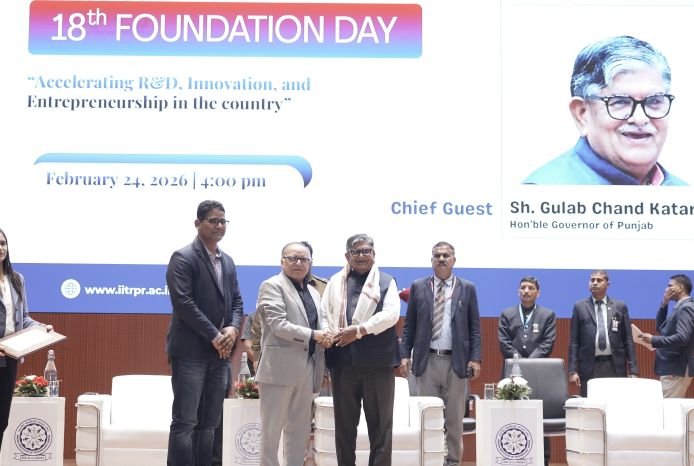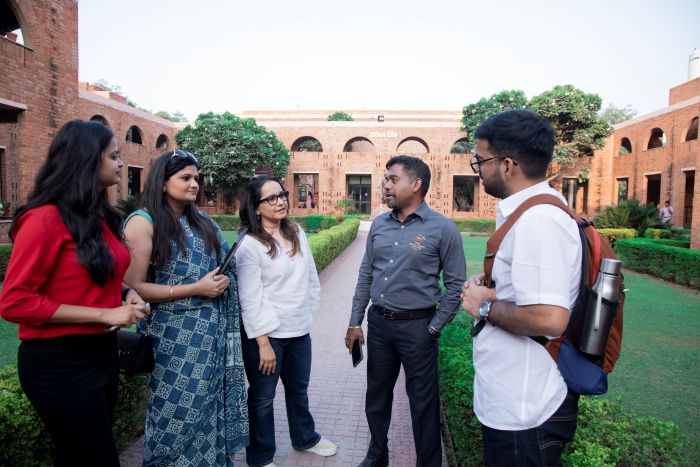
By Jitendra Karsan, Chairman, Safari Kid, India
 India is home to a staggering number of children between 3-6 years old, each bursting with potential. Decades of research have shown us that investing in top-notch early childhood education can have a lifelong impact – not just for the child, but for their families and our society as a whole. India, a land of 1.4 billion people, is experiencing rapid urbanization, leading to expanding cities and urban slums. With around 25 million children born every year, there is a significant need to address the unequal access to resources, including education and healthcare, that many of them face.
India is home to a staggering number of children between 3-6 years old, each bursting with potential. Decades of research have shown us that investing in top-notch early childhood education can have a lifelong impact – not just for the child, but for their families and our society as a whole. India, a land of 1.4 billion people, is experiencing rapid urbanization, leading to expanding cities and urban slums. With around 25 million children born every year, there is a significant need to address the unequal access to resources, including education and healthcare, that many of them face.
As education forms the foundation of early childhood development, social entrepreneurs can emerge as catalysts for change, pioneering innovative programs that deliver quality early education and empower the next generation to thrive.
Social entrepreneurship in early education can be like a superhero that finds creative solutions to make sure all children have access to quality early childhood education and ensure these children get the best possible start in life.
Let’s look into logic and pathways:
Social Entrepreneurship: A Catalyst for Change
It’s all about supporting the whole child – from education and health to emotional well-being. By addressing these interconnected needs, social entrepreneurship by innovative ventures can have a profound impact on young lives. By tackling social problems and generating financial sustainability, Social entrepreneurship can be the game-changer for broad-basing and revolutionizing early childhood development.
Let’s explore the initiatives making a real difference:
- Parent-child programs that foster lifelong learning
- Educational apps that make learning fun and accessible
- Community-based services that bring support right to the doorstep
These ventures not only improve outcomes for young children but also empower parents, caregivers, and communities to support their development. By combining social impact with financial sustainability, social entrepreneurship is creating a brighter future for generations to come.
Building a Strong Foundation in Education
In bustling cities across India, many children in urban slums face significant barriers to quality education. Various NGOs work to address these challenges by providing essential educational support and care. Social entrepreneurs can further contribute by developing innovative solutions that address the specific needs of these communities, such as creating mobile learning units or establishing community learning centers. These initiatives can bridge the gap for underprivileged children, helping them access opportunities and resources that foster their growth and development. There are many more opportunities to be explored, such as enhancing digital literacy programs and fostering community-driven educational projects.
In rural India, where development may progress more slowly, children encounter unique and pressing challenges. Social entrepreneurs can focus on rural development work to improve conditions by enhancing the educational environment with access to clean drinking water, improved sanitation, and digital and life skills training. They can also play a crucial role by introducing sustainable projects that integrate local resources and expertise, such as training local educators and leveraging community support to build and maintain educational facilities. Their efforts can make a significant impact on rural education by addressing systemic issues and creating long-term solutions.
Integration of Tech
Technology is pivotal in reaching children who might otherwise miss out on educational opportunities. Various tech-driven programs are available that harness media to deliver educational content to young children, especially in underserved areas. Social entrepreneurs can contribute by developing and scaling tech-based educational tools, such as interactive apps and online learning platforms, that are accessible even in remote regions. These innovations ensure that children, regardless of their location or economic status, have access to high-quality educational materials and support, fostering their development and curiosity.
A Healthy Start: The Role of Nutrition and Healthcare
A child’s ability to learn and grow is deeply rooted in their health and nutrition. The government’s initiatives, such as the Mid-Day Meal Scheme, demonstrate the critical role of nutrition in boosting attendance and concentration. To further address this, social entrepreneurs can bridge the gap by providing essential healthcare and nutritional support.
In remote rural areas, empowering local women to cultivate nutritious food can transform barren lands into thriving gardens, nourishing children and fostering community growth. Meanwhile, community health workers can deliver vital services directly to families, preventing illnesses and promoting overall well-being.
By combining these efforts, we can create a comprehensive ecosystem that supports children’s holistic development, ensuring they receive the nutrition, healthcare, and education needed to thrive and reach their full potential.
Nurturing Emotional Well-being: The Hidden Key to Success
When we consider childhood development, physical health often takes precedence. But what about emotional well-being? The truth is, it’s just as crucial! Social entrepreneurs can revolutionize the way we nurture children’s emotional growth, recognizing that a strong foundation now sets the stage for a lifetime of success.
In village schools, a transformation can happen. Through play-based learning, children can discover their emotions, build strong bonds, and unlock their unique potential. These safe spaces can empower kids to express themselves, build social skills, and develop self-worth, setting them up for a lifetime of resilience and success.
By prioritizing emotional well-being, we can create a supportive ecosystem that allows children to thrive and reach their full potential.
Conclusion
India’s future lies in the hands of its children, and social entrepreneurship can shape that future through innovative solutions in education, health, and emotional well-being. And, in order to turn social entrepreneurships into a sub-sector and a movement, the governments and policy makers can think of some structure on lines of economic zones and frame some enabling guidelines and look ways to incentivize the ripple effect of positive change that will this purposeful entrepreneurship can bring about. As we invest in our children’s potential, we can lay the foundation for a model that will echo through generations, fostering a society where children can thrive.








